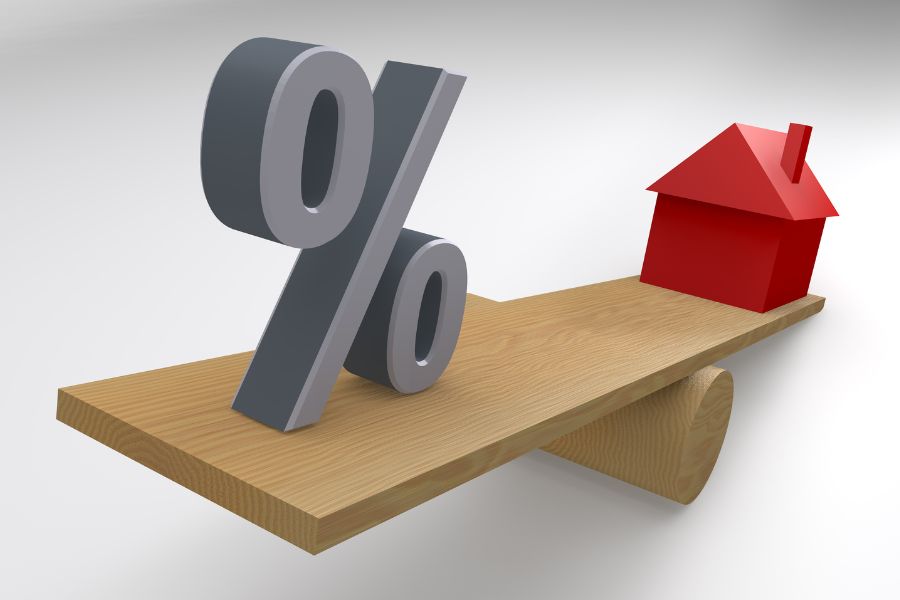Righto, we have all seen the news by now and know that the OCR was increased by 50 bps to 5.25%. This surprises many as almost all the “predictions” floating around were to see them go with a 25 bps hike.
There were some notable points outlined in the statement by the RBNZ. The big one for me was the “backflip” on how they are going to look through the cyclone damage with the OCR from the previous statement, but now we have moved to, “Over the medium term, the Committee anticipates economic activity to be supported by rebuilding efforts in the aftermath of the weather events. The demand on resources is expected to add to inflation pressure by more than assumed in the February Monetary Policy Statement” – In my previous post here I outlined this being the case in advance. The lesson here is that you can not ask the public to change the laws of supply and demand. That is a hopeful but non-compliant strategy.
So, this bigger-than-expected move is now behind us. Let’s see what the future holds. Inflation has been above 7% for over a year now. We know that monetary policy has a lag and is starting to bite. I see it daily thanks to my job, nobody is enjoying going from 3% to 6%+ rates, I can assure you. We start to see layoffs and company liquidations in the news. But, as all this is occurring the RBNZ chief economist has made it clear in a recent clip that has 1,200 views and almost no coverage.
“Inflation makes life more expensive for all New Zealanders, it’s like a pay cut and a tax on your savings rolled into one,” New Zealand – Chief Economist Paul Conway explained in a recent video.
“We have to increase interest rates further or hold them up for longer, that would mean a deeper or longer recession.
“But we will get inflation back to target and we will ensure New Zealanders feel confident to expect low inflation in the future.”
So folks, in my eyes it doesn’t get any clearer than that. We are almost certainly already in a recession. The question now is how deep will we go. If you believe the RBNZ, we have some more downside in economic data and upside in interest rates, they are openly admitting it.
Now, one thing that I think is missing from media and coverage of the current economic climate is what actually happens in inflationary environments and how long do they last. Now that we know the “Transitory” thing was a lie and it is confirmed we are in an inflationary time, I think it is important to look at some averages from previous inflationary environments from 14 OECD countries. Please, take a seat….
Historically, when inflation (CPI) passes 6% (NZ is currently 7.2%) it takes an average of 12.9 years to return back to 3% or below. The spread of this data is important to note – as the 14 OECD countries used in the research (NZ one of them) the shortest time was 7 years from breaching above the 2% figure (The longest – 22yrs). Although inflation “can” return to a 2% target level within 2 or 3 years, history shows it is hardly a sensible expectation.
In a best-case scenario, we are coming up close to 30% of the way through this period. Now, this doesn’t mean we don’t see inflation back at around 4%, settle there for a while and our mortgage rates follow it down a bit. To speculate, I actually think that is what will happen. But for the RBNZ and any other economist out there to think that our inflation will be sorted and back within a target range of 1-3% by end of 2024 or the start of 2025 means they believe they will fix our now sticky inflation issue in one of the fastest recorded times in modern history. Hmmmmm.
How to handle this? Well, this research (Done by Research Affiliates, CA) shows that we should probably expect inflation to be a longer and harder fight than what pundits are expecting. That doesn’t mean we are not near the top of our mortgage interest rate hiking cycle, it just means we may be in for a volatile few years.
Additionally, when you look at inflationary periods it doesn’t come down in a smooth arch. It takes a few goes at it. So, could rates fall by the end of the year or at the start of next year? Yes, and more likely with this latest hike plus any that follow, there is some merit in the saying “faster they go up, the sooner they come down”. But, will inflation be sorted by that time also? I would say… Unlikely.
Next time, I will explain how this pesky inflation problem will transition over time to increasing house prices again as opposed to the price slashing we are seeing now. Hint: the current falls are credit based, and it has a limited life span. You will be happy to hear that housing will once again become an inflation hedge. But, until then!
Cheers and hope you had a good Easter.
Mikey Smith – Managing Director, Guardian Smith



